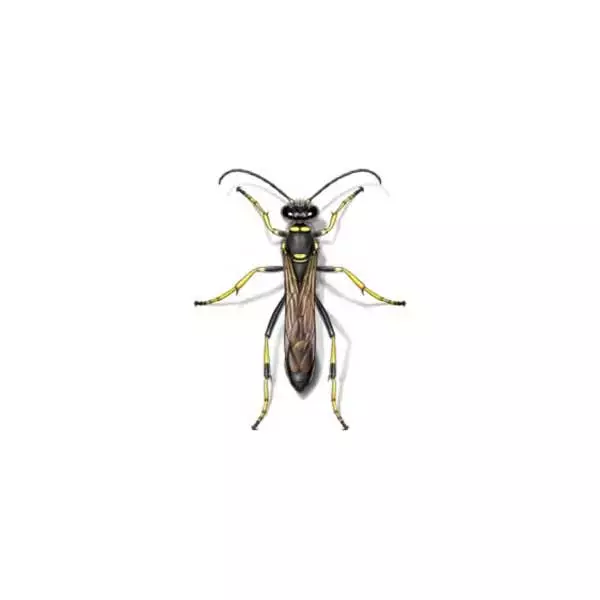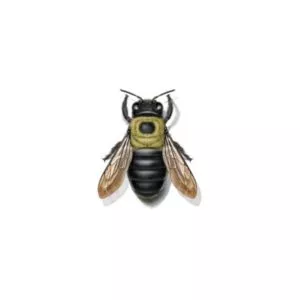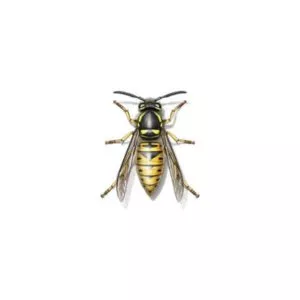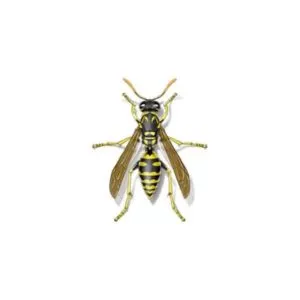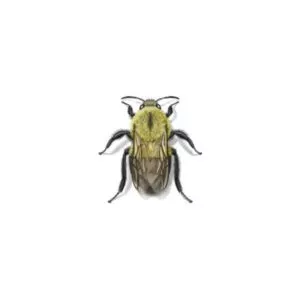Mud Daubers in Central and Eastern Virginia
Just as its name implies, mud daubers are solitary wasps that construct nests or brood chambers from mud. There are many species of mud daubers and they are commonly found throughout the United States. Besides its unique nest, one of the easiest ways to identify a mud dauber is by its thread-like waist separating its abdomen and thorax, which helps differentiate it from other types of wasps. They are not aggressive and typically do not sting unless their nest is directly threatened.
Mud Dauber Habitat
Mud daubers live in nests constructed by the female population of the colony. They build cylindrical nests that look much like organ pipes. Nests consist of short mud tubes constructed side by side and are most often located in shaded areas like porch ceilings, under eaves, or in sheds and barns. The female mud dauber collects spiders, paralyzes them with her sting, and then places them inside mud chambers within the nest. She deposits an egg on top of one of the spiders in the chamber before sealing it off. The larval wasp hatches and feeds on the spiders provided, molting several times before pupating and transforming into an adult wasp. When nests appear to have round holes on the outside, this is an indication the wasps have emerged and the nest is inactive.
Mud Dauber Behaviors, Threats, or Dangers
Mud daubers do not defend their nests and are rarely aggressive. These wasps are beneficial insects as they reduce spider populations. Although mud daubers aren’t dangerous, they can still be a nuisance when they are nesting in or near your home. If a nest is found on your property, nest removal should always be handled by a professional wasp control company, as any wasp handling can be dangerous.
Need help with Mud Daubers?
Get started with a FREE quote!

